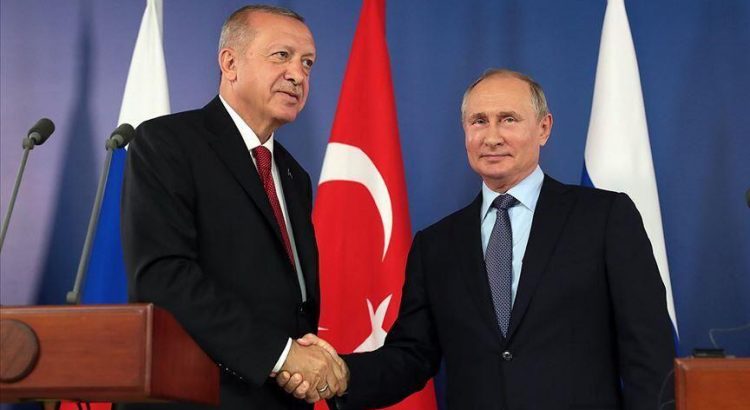Putin and Erdogan Plays “Syria Game” in Libya
- General Khalifa Haftar, the military leader who has controlled eastern Libya since last year, has been trying to seize Tripoli.
- United Nations, diplomats have tried to establish dialogue and friendship between them – but to no avail.
- Libya is an attractive country for those in control.
The recent crackdown on rebel leader General Khalifa Haftar’s forces in Libya has made it increasingly clear that Russian President Vladimir Putin and Turkey’s Recep Tayyip Erdogan are set to take over covert control of the country’s future. Turkey provides military assistance to support of the government in Tripoli, while Gen. Haftar’s army has several thousand Russian “mercenaries.”

After the overthrow and assassination of Libya’s ruler, Colonel Gaddafi, in 2011, the country’s state structure collapsed, and a civil war ensued, involving foreign powers. In Tripoli, the government of UN-backed Prime Minister Fayez al-Seraj is in power, but has to deal with various rebel groups that control parts of Libya.
Gen. Khalifa Haftar, the military leader who has controlled eastern Libya since last year, has been trying to seize Tripoli. However, his forces are now retreating in the face of an attack by the Tripoli government. In addition to support from Turkey itself, Tripoli’s forces also include fighters from Syria’s Turkish-backed forces.
Libya’s future seemed bright at one time, but this does not mean that the civilian population of the country can expect a peaceful future. Libya is rich in oil and gas resources. The country could also be an attractive destination for tourists. Libya has 2,000 kilometers of Mediterranean beaches. There are archeological sites from the Roman period, which can be claimed to be the equivalent of Italy.
It is not impossible for an energy-rich country to ensure education, health, and quality of life for its citizens. Now, however, they have nothing, including no security of life. Most of the country’s hospitals and clinics have been destroyed by the COVID-19 infection. As many as 200,000 people in western Libya have already fled their homes. Libyan cities have now become one city-state. The rebel militias that fought Gaddafi’s regime have enjoyed power since his fall.
Each of them has their own agenda, they will not surrender arms. At the initiative of the United Nations, diplomats have tried to establish dialogue and friendship between them, but to no avail. Hanan Saleh of Human Rights Watch says all sides in the civil war have treated civilians in the same way, but Khalifa Haftar’s forces in particular have perpetrated atrocities that could be considered war crimes.

Foreign Powers Involved in Libya
Gen. Haftar emerged in 2014 after ousting Islamic extremists in Benghazi, Libya’s second-largest city. Gen. Haftar is known in Libya for his hostility to Col. Gaddafi. He spent many years in exile in Langley, Virginia, USA. The city is the headquarters of the US Central Intelligence Agency.
Sitting here, Gen. Haftar plotted Gaddafi’s downfall. Now in control of Benghazi, and campaigning in Tripoli, he sought to overthrow the internationally recognized government of Fayez al-Seraj and turn Libya into a state again. From then on, it was clear that foreign powers would be involved.
What do Foreign Powers Want?
Libya is an attractive country for those in control. The population is less than 7 million, but it has the largest oil and gas reserves in Africa. Its location is just across from Europe. The hydrocarbons here can be exported directly across the Mediterranean.
On the other hand, ships of rival oil and gas producers in the Gulf region have to come by dangerous sea routes. Turkey, Qatar, and Italy support Prime Minister Fayez al-Seraj.
Gen. Haftar is backed by the United Arab Emirates, Jordan, Egypt, Russia, and France. The United States, however, has given one political signal after another since Donald Trump became president. Now the United States fears that Russian President Putin may establish his influence in Libya, just as he did in Syria.
The views expressed in this article do not necessarily reflect the views and editorial stance of the SOHR.
Source: Putin and Erdogan Plays “Syria Game” in Libya – Communal News

